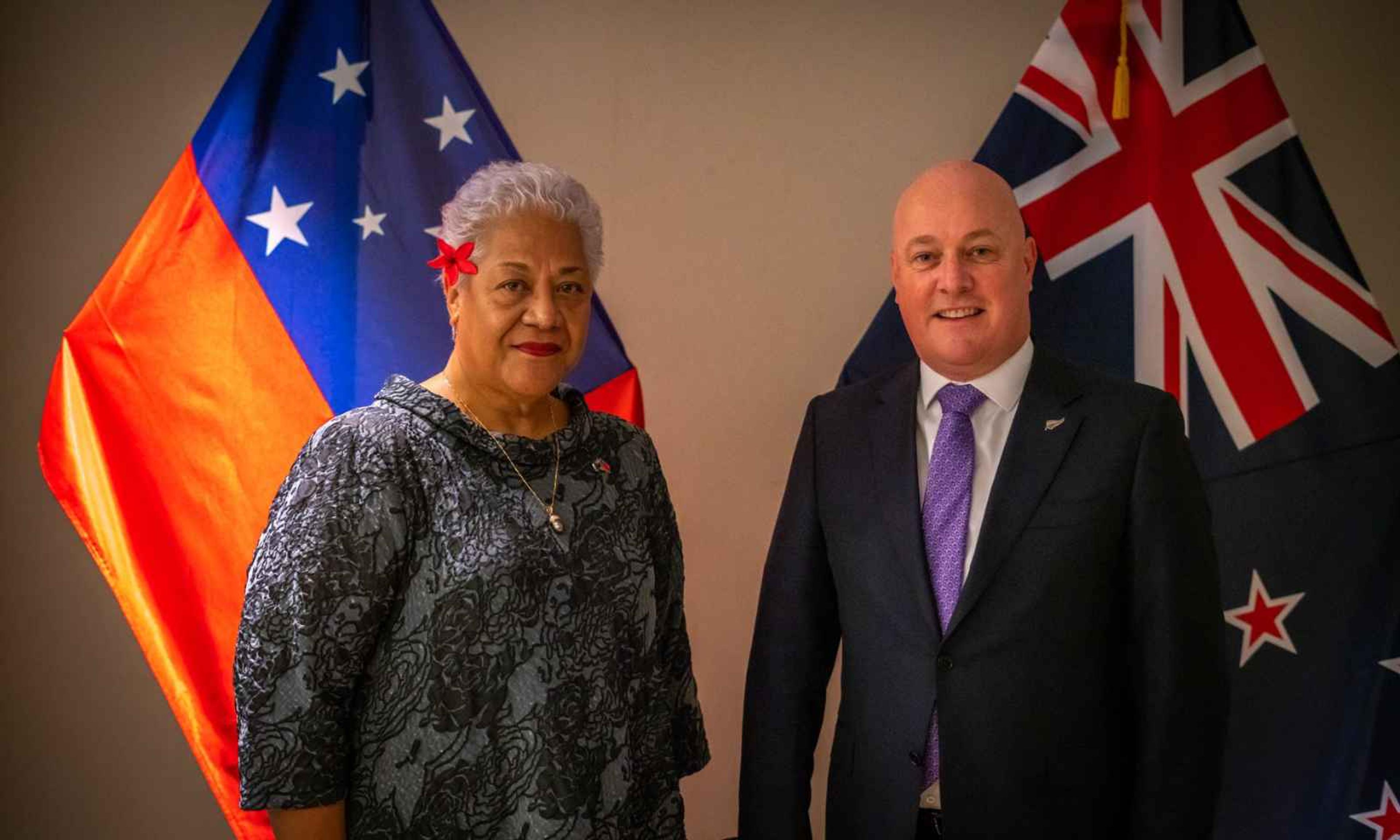
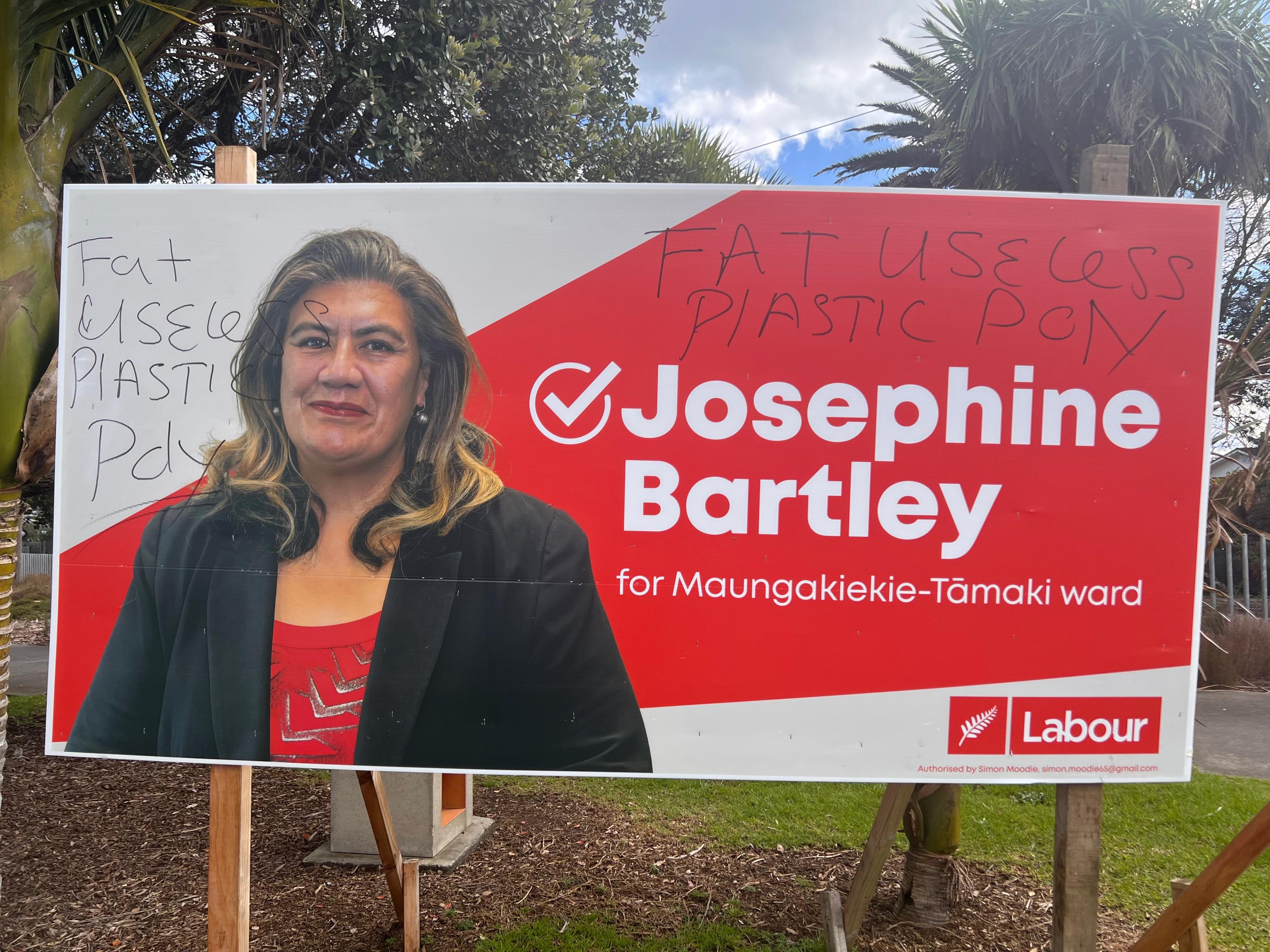
Racist slur on Councillor Josephine Bartley’s billboard in Onehunga.
Photo/PMN News Mary Afemata
‘Fat, useless, plastic poly’: Candidates call out hoarding vandalism
Damaged billboards are hitting female candidates’ pockets and exposing the racial and sexist abuse that still shadows Auckland’s local elections.


From adversity to ancestry: Pacific wayfinding through a neurodiverse lens

Shifting Strategies: Japanese diplomacy grows as PNG, Australia sign defence agreement
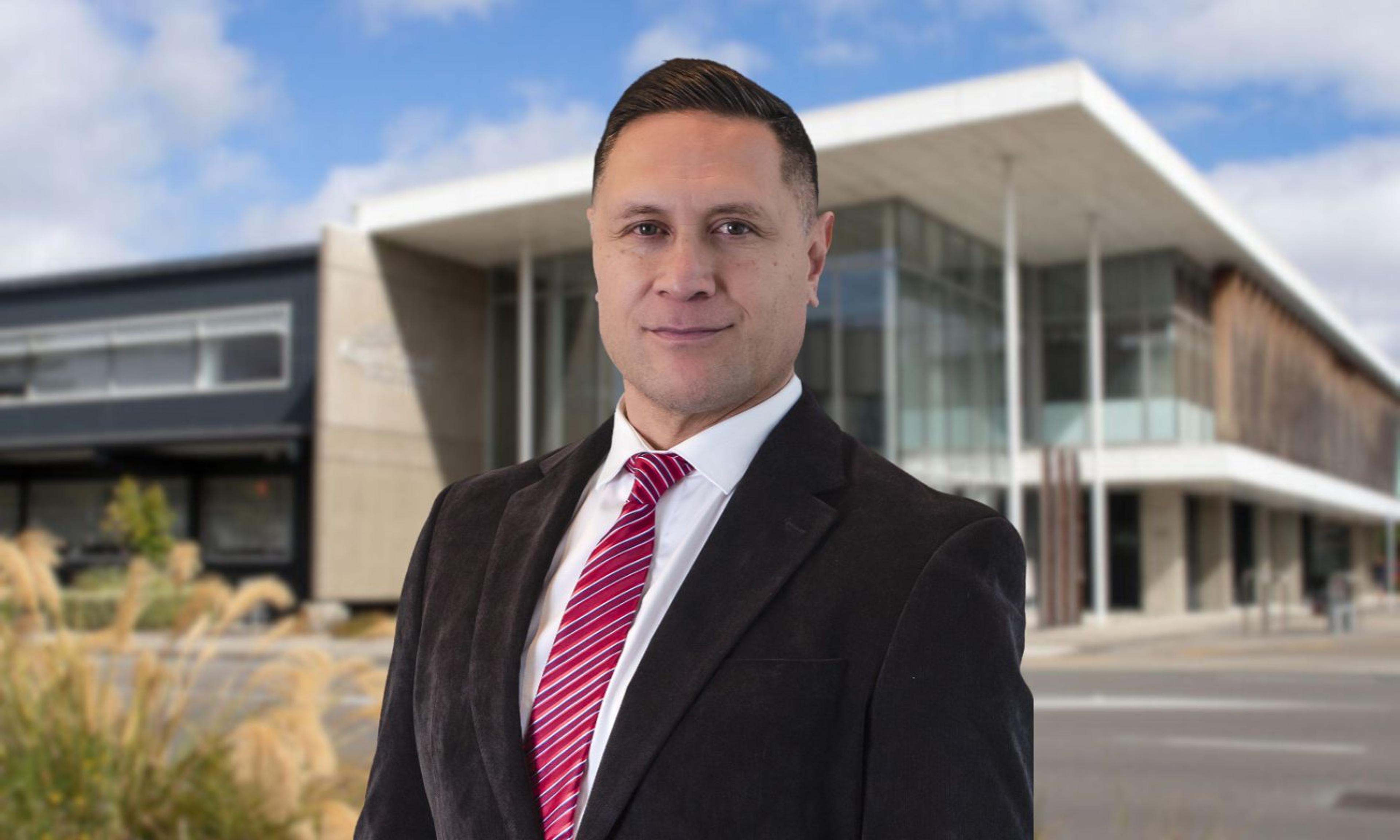

‘There wasn’t a negotiation’: PM on Manawanui payment

From adversity to ancestry: Pacific wayfinding through a neurodiverse lens

Shifting Strategies: Japanese diplomacy grows as PNG, Australia sign defence agreement

Election hoardings of three Auckland female candidates have been vandalised and graffitied with offensive and racist words.
The three targets of the vandalism say it's not just graffiti - it’s racist abuse, a financial burden, and a threat to democracy.
Josephine Bartley, the incumbent councillor for Maungakiekie and one of only two female Samoans on Auckland’s governing body, says a hoarding on Captains Springs Road was defaced with explicit abuse.
“They’d written all over the sign, calling me a ‘fat, useless, plastic poly’.”
Another one of her billboards on Trafalgar Street was attacked just a day after it went up.
“We put it up on Saturday and by Sunday someone had cut my face and my name out,” she says.
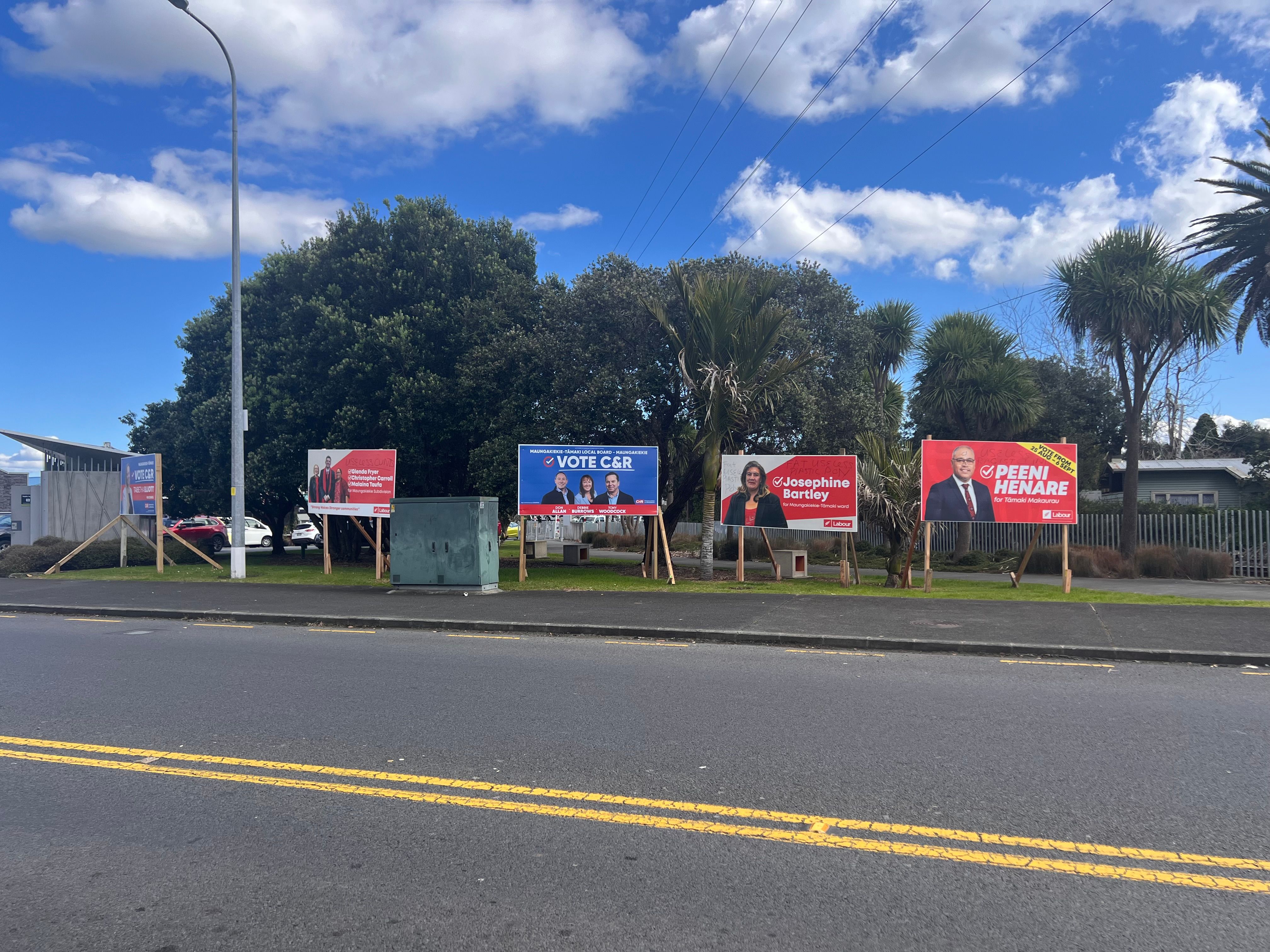
Vandalised billboards sit alongside untouched campaign signs. Photo/PMN News Mary Afemata
Bartley says she has chosen not to replace damaged boards because of the personal cost.
“I told the Labour team to leave my billboards. Anything that’s vandalised, leave it because I’ve got a mortgage. I can’t afford to keep buying more signs. I’m only buying 30 and that’s it.”
In previous campaigns, she used 60 hoardings, but this year she cut back.
“People don’t like the visual pollution and I agree with them. But also, it doesn’t sit well with me that we’re going to spend thousands on a campaign in a cost-of-living crisis.”
First-time candidate feels targeted
First-time candidate Malaina Taufa, who is of Samoan and Niuean descent and married to a Tongan, said the vandalism was crushing.
“It was my first time putting up hoardings and it was a proud moment for my family, because they all came out to help,” the Maungakiekie subdivision candidate says.
“By Monday, just a few days later, somebody had vandalised it. They cut out our faces and wrote really explicit stuff on it. Pretty disheartening, kind of sad.”
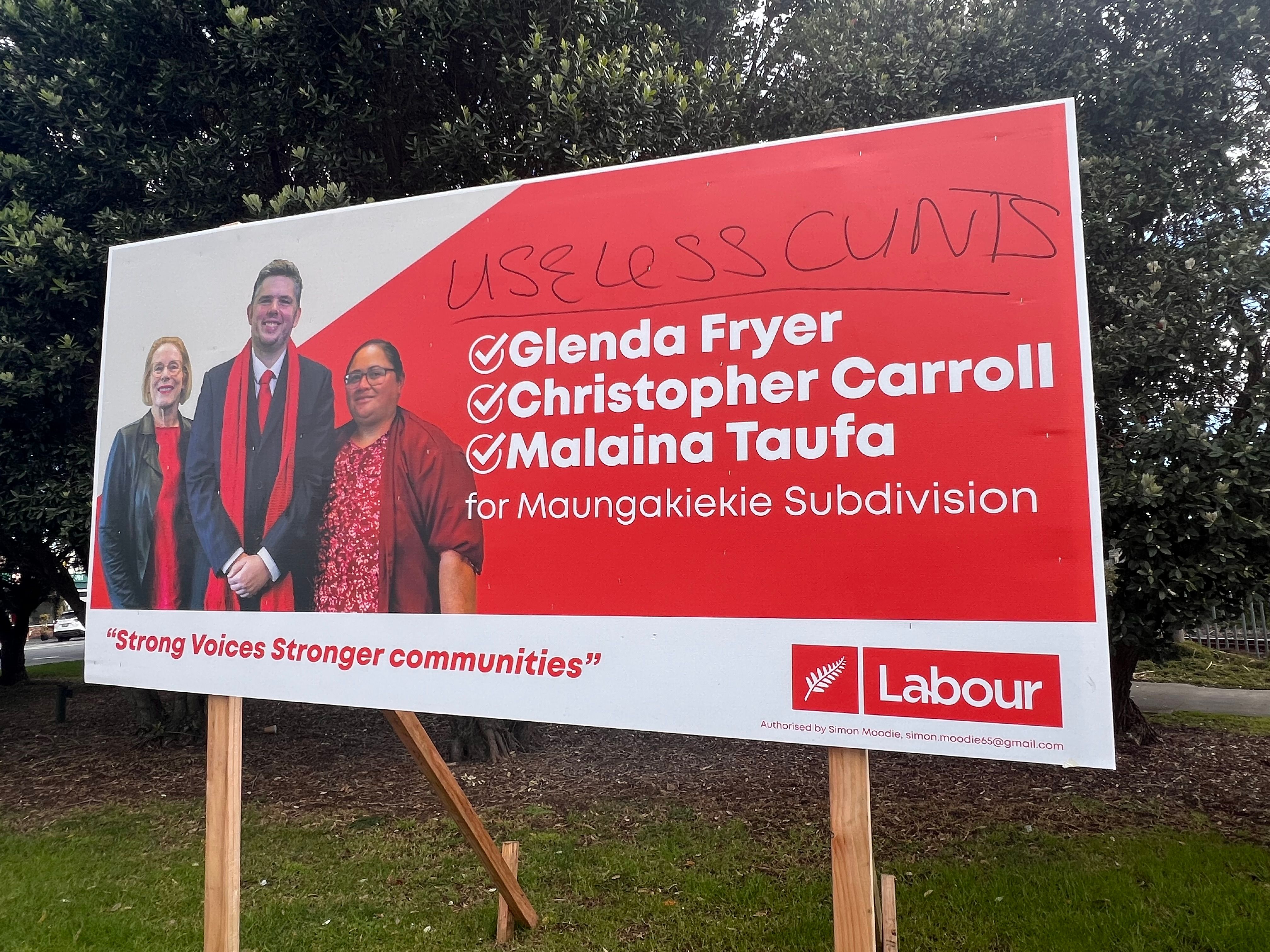
Malaina Taufa says the vandalism is disheartening but won’t stop her campaign. Photo/PMN News Mary Afemata
Taufa says she wonders if race plays a part.
“How come our boards are all attacked and the others haven’t been touched? It makes me think, is it a racist thing? Is it because of our race, or people not liking our party? It really makes you wonder.”
Her children and students from the school where she works have noticed the graffiti.
“My kids drive past and say, ‘Mum, look, they wrote on your sign.’ Even children from my school see it, and they’re reading words that are not appropriate for young children. That’s what hurts.”
Despite the abuse, Taufa said she is determined to continue.
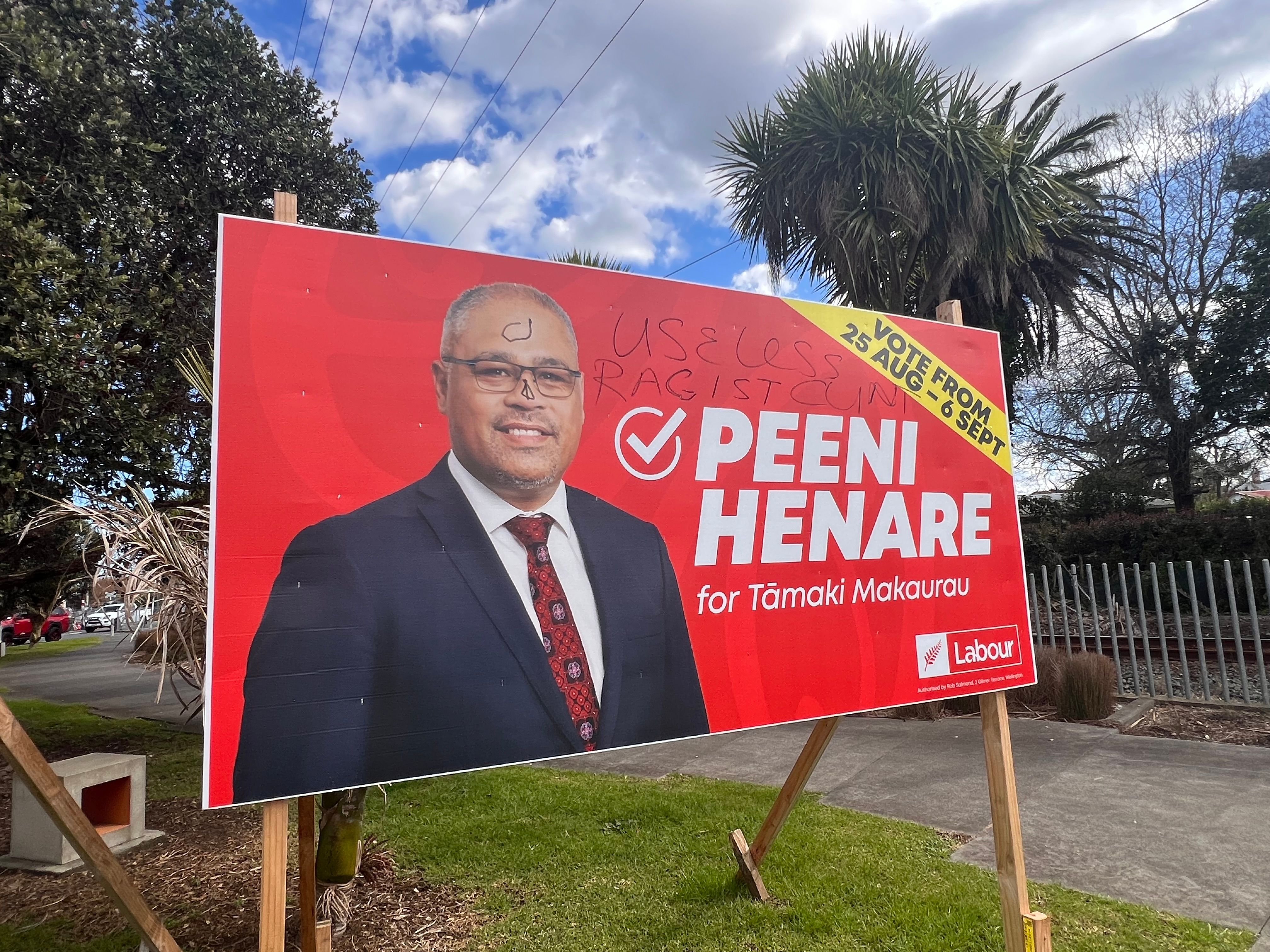
Defaced hoardings highlight the cost of campaigning in local elections. Photo/PMN News Mary Afemata
“These things make you want to stop, but actually, they should motivate you to keep moving forward.
"That’s what Pasifika people do. We’re hard workers, and we don’t just shut down because of rude comments.”
‘Sideways cactus’ becomes a T-shirt
Independent Howick candidate Bo Burns, a Pālagi woman, is shrugging off graffiti on her election boards, calling it a regular feature of local campaigns.
“I’ve had moustaches and other funny things,” she says.
This year, the defacement was a crude drawing she has dubbed the “sideways cactus”.
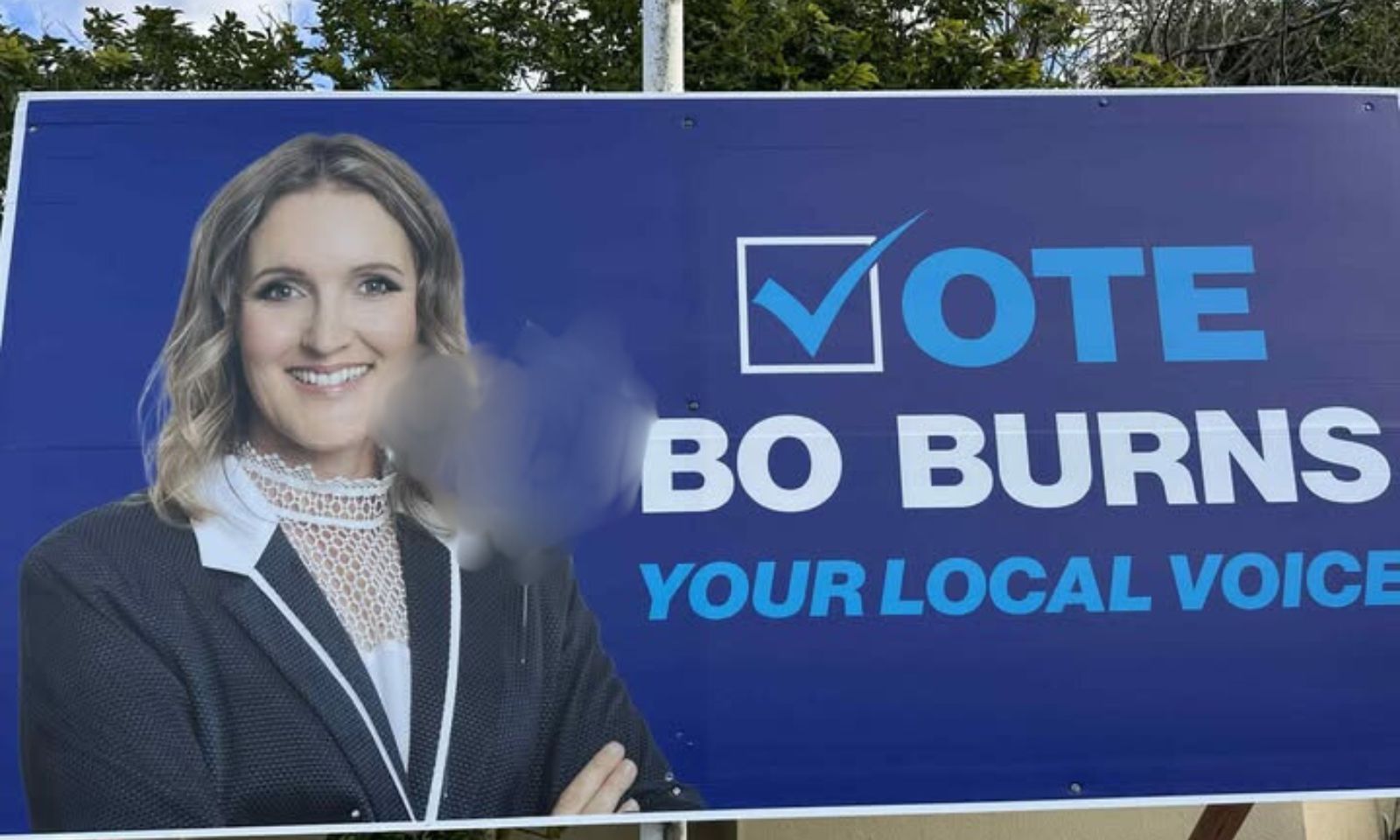
Bo Burns' hoarding is tagged with a "sideway cactus" which has been blurred. Photo/ Bo Burns- Howick Local Board Facebook.
Burns jokes about turning it into a tongue-in-cheek campaign T-shirt, but says the vandalism was disappointing.
“Well, you know, no one likes to be a sideways cactus, do they?
“A couple of elections ago, I probably would have felt a bit upset about it, but this time it’s water off a duck’s back,” Burns says.
“It wouldn’t be a campaign without something funny being drawn on your billboard. But people don’t understand the cost personally to replace it, especially for independent candidates.”
She says the attacks add financial pressure to already costly campaigns.
“Most candidates spend between $3,000 to $10,000 of their own money to campaign. We pay to be scrutinised. People need to remember candidates are putting themselves forward because they care about the community. The least the community can do is tick a box and put it in the post.”
Burns adds that her bigger message is not to be distracted by vandalism but to focus on voter turnout. “You don’t have to vote for me, but vote for someone and do your homework. We’ve got to increase the voting for local politics, it’s only sitting around 30 per cent.”
Democracy at stake
Voter turnout in New Zealand’s 2022 local elections hit a record low of 36 per cent nationally, with Auckland registering just 35.4 per cent. The Maungakiekie–Tāmaki ward recorded 19,753 votes.
Turnout was notably lower in more deprived communities, and Māori voters were less likely to take part than non-Māori. On average, metropolitan councils struggled to reach 39.8 per cent turnout, underscoring the wider crisis of engagement in local democracy.
All three women say the issue is bigger than spray-paint and cut-out faces.
It places financial and emotional strain on candidates, exposes children to racist and derogatory language, and reflects a lack of respect for democracy itself, they said.
-LDR is local body journalism co-funded by RNZ and NZ On Air.
